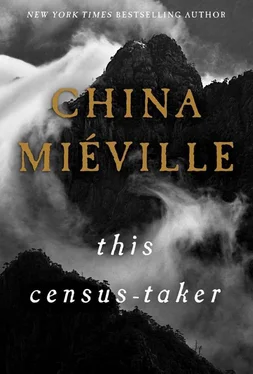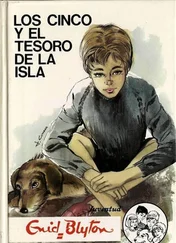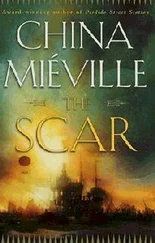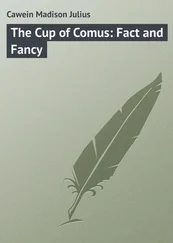There were higher and steeper roads where some houses were changed on the inside, rooms and floors removed, even, so the shell of what had been a cottage was now a church of some low faith, or a showcase for huge industrial goods. It was on the door of one such that my mother knocked one day, to be let in by a harried young woman in a filthy apron chewing flavored bark. She let us into a dim acrid corridor raucous with throaty sounds. The windows were blackwashed and there was a low wire mesh in each doorway. Every room had been cleared of furniture and thronged with fowl, gathered by age and sex, tiny chicks chirruping pitifully in what had been a bedroom, larger birds jostling in the kitchen. I coughed in air dense with the dust of feathers. I heard the geese upstairs.
The woman spat toward an under-stairs cubby and two cockerels lurched over to investigate.
“Come on then,” she said. Then she said something in another language, but my mother immediately shook her head, and the woman went back to our own. “What do you want?”
My mother bought eggs and a bird for eating. The young woman wrung its neck.
We went to a small stinking house on the run-down valley-side street. Its door was unlocked; my mother pointed for me to stay outside but when I heard her ascend the stairs I followed her inside, into a different reek from that of the chickens.
The house was a dump. People would enter to leave their trash and pick through that of others. Drifts of rubbish received me coldly, layers of moldering remains, grudging hosts silent but for the tiny shifts of rot. I held my breath and picked through to the window, to join spectating flies and the drifts of their dead in staring out into the gap.
There were eyes on me too, from within a mound of refuse. The sight of them made me gulp a mouthful of that awful smell.
Glass circles in a hinge-jawed wooden head, nestled in the garbage. Years of decay had eroded its rudimentary features and drawn it an intricate and terrible new mildew face, from which I ran.
On a vivid day as summer hurried in I came down the path from the garbage hole and I saw my father walking up toward me.
I stopped. Sometimes if you stand very still and close your eyes you see rocks behind your eyelids. Or you realize aghast that the shapes of things are other than you’d understood.
“I didn’t go in,” I said. “You didn’t say I couldn’t go to the cave just not in . I only went to the edge.”
I rarely disobeyed my parents. When either of them discovered me in any transgression I would shake, or I would freeze as still as a wax boy. If my father thought I’d been bad he might make me stand outside, was all, even in the rain. My mother might look at me and mutter with dislike and maybe knock with her knuckles across the back of my hand as if at a door: the painless sanction filled me with shame. Still, when it came time for punishment I’d always be paralyzed as if they would kill me. I didn’t move as my father approached, and I could hear only the wind around my face.
He didn’t even furrow his brow. He didn’t glance at me. I watched how he trudged, not tired. I looked at the hand in which he’d carried the broken dog that last time and I saw that what was in it now, what I’d thought a sack of trash, was a lolling mountain bird.
The hill was always busy with these flightless scavengers we called scunners. A scunnerbird is tough and stringy but there’s much worse eating. Shoot one, you have two or three days of stew. My father had no gun. Scunners are skittish and fast despite their fatness and I couldn’t think how my father had enticed this one to him. I knew that, by whatever means he’d killed it, it was not to eat. I wanted to cry; I stood still.
He had it by the neck. Its brown body was bigger than a baby’s. Its shovel head lolled and its nasty hook beak twitched open and closed to snap faintly with each of my father’s steps. The bird’s broad feet dangled on the ground and bounced on stones as if it were trying to claw itself incompetently to a stop.
My father passed me. He looked briefly at me as you might at a stump or a broken machine or anything that’s specific only in that it’s in your way, to walk around it as my father did me.
I knew he was taking the dead bird to the rubbish hole, that he’d throw it up so it would curve as it had to and descend; I knew that day my father was feeding only the darkness.
—
The boy went to the low-down part of the attic where he drew, and drew a lizard in a bottle between the stems of the wallpaper’s design. He came back the next day and, beside it, he drew a cat in another bottle and a fox in a third. He drew a fish in a bottle, a crow in a bottle, a mountain lion in a big bottle. He’d never seen a mountain lion but he heard them sometimes and knew he was to be afraid of them. He imagined that deep throaty growl contained by glass and the thought fascinated him. He drew corks tight in the bottles’ necks.
He cramped his drawings together to keep them a secret, and he saw that without intending it he’d drawn his bottles as if neatly lined up in some strange cupboard. So he drew a shelf beneath them, and while daylight reached them and cast across them the shadow of his own drawing hand, he put down the lines of a house around the bottles, to contain them, and he drew another house to either side. He could have filled the whole of the room, covered every wall of it in the smudged lines of rendered streets, that they could be filled in turn with women and men and children in the same lines as their city, some like small women wearing masks, some people squat as if they lived underwater. Someone there would be the keeper of those bottles.
He wanted his pictures to be secret so he kept that city and itemized all its citizens in his head.
I looked out. My mother was digging, and she came into view as she bent to extract unwanted roots. The wind pulled her clothes and tugged scraps of paper from her pocket. She balled something up in her fist and put it into the ground and covered it carefully and very gently with soil.
Soon I’d be too big to do as I liked to, to hunker and perch in the little window’s alcove. I swung my knees up and braced them with my back curved and my head down, so I was bundled up on the sill as if the house itself held me like a baby. I sat like that on the ledge because I still could.
From there I’d look out and down across the edge of the garden and the incline of our hill, the rough up and down of the tree line, the sky. Sometimes people called it a hill, sometimes a mountain. It moved unceasingly. Branches spread, trees twisted behind trees in all the wind. Even the stone moved.
I sat up then because I thought I saw a new green, outlines of tough vegetation, neither needles nor fibrous leaves but spines on bunched and distinct knotty skin, misplaced amid the gray and those dusty greens I knew, swaying, pushing purposefully above the hillside growth at the edge of my sight as if deliberately positioned to be glimpsed against a sky the color of the hill rocks. A quickly moving visitation.
What I saw was gone almost instantly into some dip in the uneven ground.
I came out of the window and ran down the attic stairs and out and up the footpath. I ran as fast as I could to the copse at which I’d been staring. I pushed straight into its empty center to stand alone amid clustering midges. I listened for a long quiet moment, and wondered whether the gap I saw ahead of me was where the bushes and low trees had been pushed apart by someone big, or whether they were even still vibrating from that passage. The shale there didn’t show marks well but there were scuffs between the roots, and I decided they were great footprints. And did the ground shake? As if someone had turned and was retracing their steps toward me?
Читать дальше












